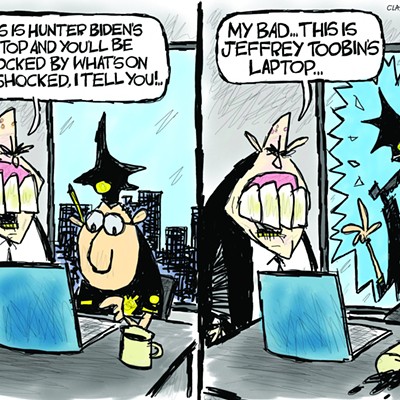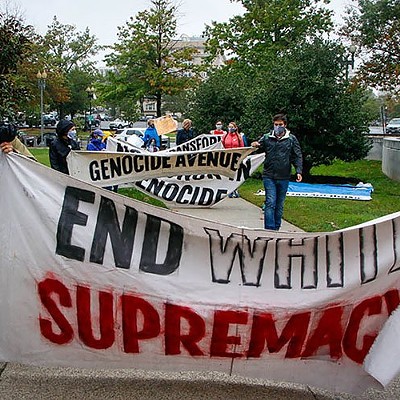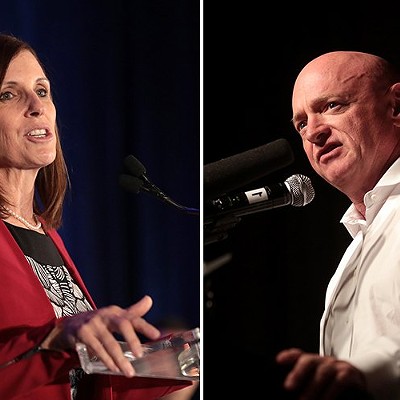Pima County Recorder F. Ann Rodriguez says close to 130,000 voters have asked to be included on the list, which means they will automatically get early ballots for every federal, state and county primary and general election. (Independents on the list will first get a postcard asking which party's ballot they'd like to receive for primary elections.)
Rodriquez says the list will make life easier for voters, who won't have to request the ballots every year.
"We have the same voters always complaining, 'Why do we have to keep calling every year?'" Rodriguez says. "It's a service we have to provide."
Vince Rabago, the chairman of the Pima County Democratic Party, says the new list will save time and resources, because the party will no longer have to coax the voters who are on the new list to request an early ballot, saving printing and mailing costs.
"Without this kind of list, you've got to reach out to people to get them to request an early ballot," Rabago says.
Judi White, who chairs the Pima County Republican Party, says the advantages of having a permanent early-voter list is "one thing that Vince and I agree on."
"We're always in support of anything that will increase voter participation," says White, who adds that she and her husband both vote by mail. "It's a good thing for folks to vote early. Having that information about early voters will help us in our get-out-the-vote effort."
Early voting has come a long way since the early 1990s, when the Arizona Legislature loosened the restrictions on voting by mail. In the 1992 general election in Pima County, about 16 percent of voters cast early ballots; by the year 2000, 34 percent were voting early. In 2006, about 54 percent (or nearly 154,000 voters) cast early ballots.
Part of the reason behind the increase comes from political parties and candidates who have pushed early voting. Savvy candidates figured out long ago that asking voters to request early ballots and then following up by contacting those voters helped them lock in support before Election Day. By tracking which voters have turned in early ballots, campaigns can then target the remaining voters and not waste limited resources on people who have already voted.
Despite early voting's growing popularity, however, Arizonans appear to have a sentimental attachment to having traditional polling places. Voters rejected a ballot proposition in 2006 that would have created a new system of mailing ballots to all voters and leaving only a few polling places open on Election Day.
The shift to voting by mail has created a lot of headaches for the Pima County Recorder's Office, which has to process each of those early-ballot requests.
This year, Rodriguez won't have to hire a staff to stuff all of those envelopes. In the name of efficiency, Rodriguez expects to pay about a million dollars to a Phoenix-based mailing firm that does similar work for Maricopa County.
"We're not a professional mailing house, and these volumes are huge now," Rodriguez says.
The contractor can process up to 7,500 early-ballot requests in one hour, while Rodriguez, who has hired temps to handle the work in the past, can usually handle about 1,000 an hour, Rodriguez says.
The county has budgeted about a million dollars for the early-ballot work, which includes printing materials, but the final cost will depend on the number of early ballots that are processed. That's more expensive than doing the work in-house, says Rodriguez, "but I also have a better quality control and more security for the ballots."
Emil Franzi, a conservative talk-show host, political consultant and former automatic-weapons editor of the Tucson Weekly, remains opposed to the idea of early voting.
He argues that early voting increases the possibility of fraud since it allows voters to sidestep the requirement to show ID at the polls and increases the chances that someone inside the government could somehow alter the pile of ballots that are awaiting tabulation.
Franzi also agrees with his radio co-host, Weekly columnist Tom Danehy, that going to a polling place is an important democratic tradition.
"It is not hard to vote," Franzi says. "When one considers the sacrifices that have been made, one could pay back a little by getting off one's fat ass and going out and voting."

















